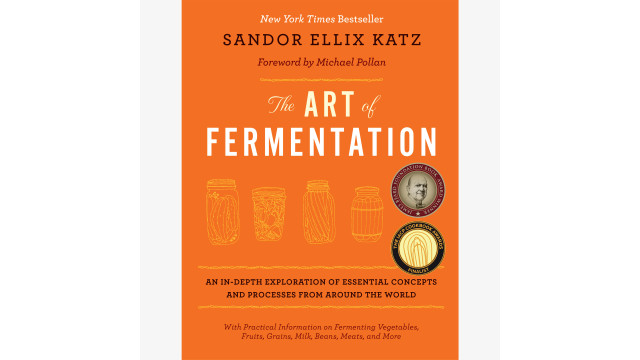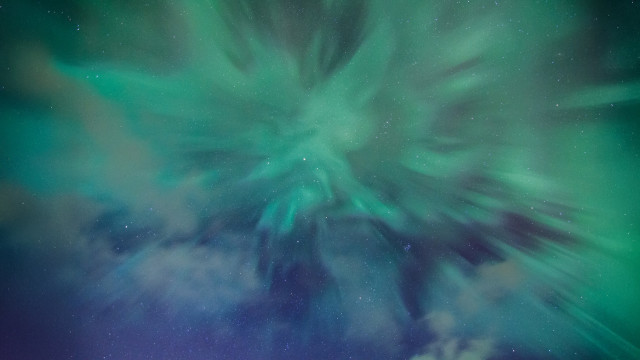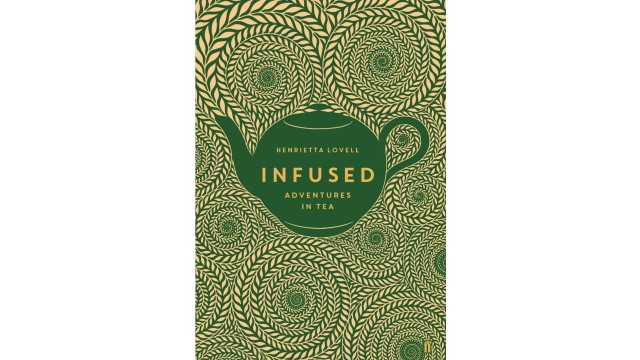Q&A with Sandor Ellix Katz

For Sandor Ellix Katz, fermentation is not restricted only to cooking and the kitchen. The invisible microbial forces that transform food to make it more nutritious are a metaphor for much larger transformative processes in our lives.
Katz’s journey as a “fermentation revivalist” began in 1993; his fascination with microbial magic was a natural progression from his interests in gardening, nutrition, and cooking. Once a diehard New Yorker who drafted policies for political firms, Katz moved to a rural commune in Tennessee following an AIDS diagnosis. Here, in the company of kindred queer folk and people interested in living more consciously, fermented foods were a part of his healing journey. Realizing that much of the culinary folk wisdom around fermentation was being lost, Katz began to write about this process of making food more delicious and nutritious.
His first book Wild Fermentation (2003) was followed by The Revolution will Not be Microwaved. In 2012, he won a James Beard award for his now classic The Art of Fermentation, which he followed up with Fermentation as Metaphor (2020) and Sandor Katz’s Fermentation Journeys in 2021. When he’s not travelling to hold workshops, the fermentation guru continues to experiment with the process in his 200-year-old farmhouse.
As Katz points out, there’s no escaping fermentation — from a morning coffee to a piece of chocolate before bed, fermentation is intrinsic to our lives.
Roundglass Food: You speak about fermentation as a form of spiritual connection. How does that work?
Sandor Katz: Fermentation involves working with invisible life forces such as bacteria and fungi. I find that my fermentation practice has made me more aware of the presence of forces at play beyond what I can sense — and more trusting that [these forces] are always present.
RG: How does fermentation play into your overall wellbeing?
SK: I became interested in fermentation for many different reasons. From an early age, I was always drawn to foods with the flavor that I now recognize as lactic acid. And it was the practical value of fermentation in preserving the garden’s bounty that was the primary catalyst for me to learn how to ferment at home. But fermented foods and beverages were also very appealing to me because of their potential to improve digestion and nutrient bioavailability, as well as overall immune function. I certainly do not think they or anything else are a panacea, but they make a huge difference in my daily wellbeing, and that of many, many other people I have met.
RG: What are the meditative aspects of working with food and fermentation?
SK: I spend a lot of time working with food in different ways, not just fermenting. Many of the repetitive tasks of gardening, harvesting, and processing food can be quite meditative. Fermentation always requires time and takes patience.
RG: How do gardening, cooking, and fermenting strengthen your relationship with the earth?
SK: My connection to the earth is strongest when I’m out in the forest. Food that I forage in the forest makes me feel like I am one with the earth. Working in my garden also makes me feel strongly connected with the earth and all the life forces. Cooking and fermenting are extensions of that connection; which is to say, turning products of nature and agriculture into beautiful, delicious, nutritious food is a way to honor the earth and the gifts she bestows upon us. Fermenting opens the door to another level of connection with the earth, cultivating microorganisms. This practice requires people to become more observant.
RG: What is that one fermenting moment that elevates your day?
SK: The word fermentation comes from the Latin word fervere, “to boil,” because frequently the visible sign of fermentation in liquids is bubbles. I always find it exciting when my ferments begin to bubble and visibly come to life.
RG: What kinds of reactions did your last book, Sandor Katz’s Fermentation Journeys, receive?
SK: I am so gratified by what people have expressed to me about my books! One of the most wonderful reactions I have heard is people who have been inspired to investigate their own ancestral fermentation practices after reading my book.
RG: How has fermentation changed your perception of life and death?
SK: Fermentation has certainly made me think about death. Microbes are present on every multicellular life form; however, they cannot consume and transform (ferment) the organisms they inhabit until the organism dies. Without fermentation, dead plant and animal matter would accumulate on the earth; instead, microorganisms recycle nutrients and continually renew life.
RG: Which season is special to you for cooking?
SK: I am motivated to cook all year around, even in the heart of summer. But my cooking becomes much more elaborate in the colder months.
RG: What’s your treasured kitchen possession?
SK: I have a beautiful collection of handmade ceramic crocks, in different shapes and sizes, that I use for fermenting.
RG: What is a mindful practice around food that you would recommend?
SK: I followed a macrobiotic diet for a few years and got into the habit of chewing my food for a long time. I think eating slowly and chewing food well are extremely important practices that require some degree of mindfulness.
RG: What’s something you do before any meal at which people gather around a table?
SK: I like to acknowledge the food by telling people something about what they are about to eat: where the food itself, and the ways in which it is prepared, come from.
RG: What’s a food experience that transformed your life?
SK: The most profound experiences I have had with food have involved visiting very remote places, where people are mostly subsisting on the food they produce. It provides a window into the extremely practical roots of almost all food practices.
Key Takeaways
- Fermentation makes food more nutritious.
- Fermentation deepens nature's bond.
- Fermentation is meditative and mindful.









